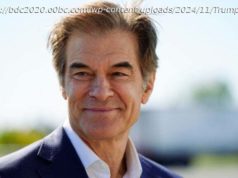If American foreign commitments continue to exceed American power, the inevitable result will be additional crises and accelerated decline.
The United States’ primary security interest in Ukraine is a stable relationship with Russia, but you would not know it based on U.S. foreign policy. As John Mearsheimer has argued, the United States has pursued a revisionist policy “to make Ukraine a Western bulwark on Russia’s border.” This strategy, which included vague promises of eventual NATO membership, was pursued with naïve disregard for Russia’s security concerns and the likely effect on the U.S.-Russia relationship. As early as 2000, power transition theorists argued that “Russia matters because of the potential power of a Russian-Chinese alliance.” Just as Russia ought to have been viewed in light of the anticipated security competition with China, Ukraine ought to have been viewed in terms of the realpolitik need to keep Russia onside. Instead, motivated by liberal ideology and mistaken assumptions tracing back to the end of the Cold War, the United States viewed Ukraine (and Georgia) as the logical next target for inclusion in its democratic alliance system. If history was over, then such a policy was logical. Ukraine’s inclusion in key Western institutions was simply part of a process whereby China, the Middle East, and Russia itself would eventually join the United States in a universal democratic peace. This faulty vision, derived from learning the wrong lessons of U.S. victory in the Cold War, is responsible for errant U.S. policy in Ukraine. It is responsible for the idea that because democracy was on the march and because democracies tend not to fight one another, “support for democracy [was] to be our guide in the… world,” as David Lake summarized the widely held view in 1994. The successful expansion of NATO in 1999 and 2004, as well as waves of EU enlargement, reinforced this view. But Russia’s invasion of Georgia following NATO promises of future Georgian and Ukrainian membership at the alliance’s 2008 summit in Bucharest should have been a blinking red light that spheres of interest still mattered. Instead, the United States chose to ignore this warning. Its ideological blinders would not allow it to consider that great power politics remained alive and well.






